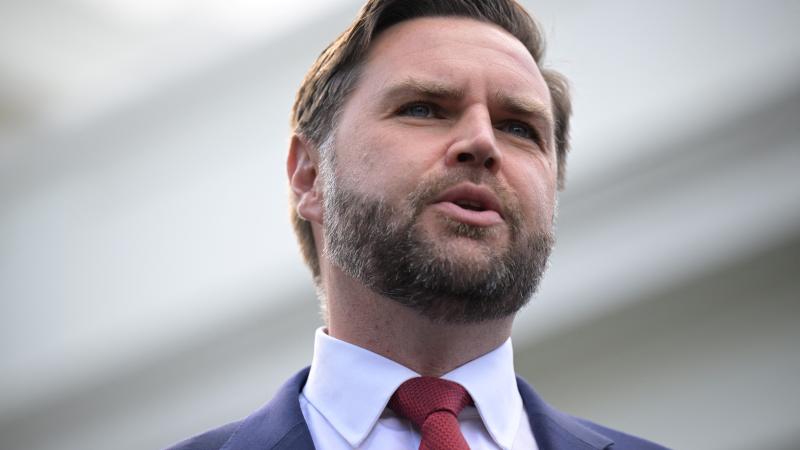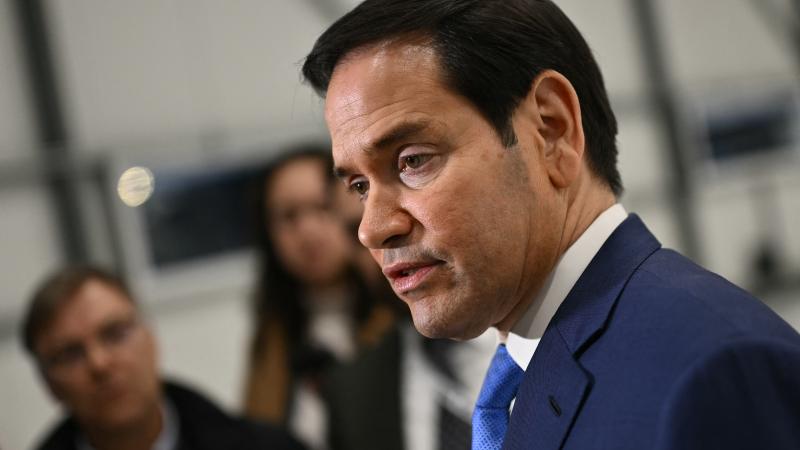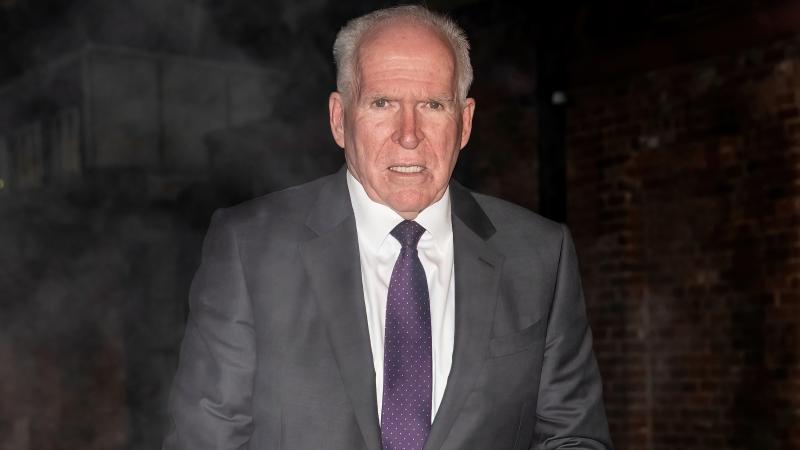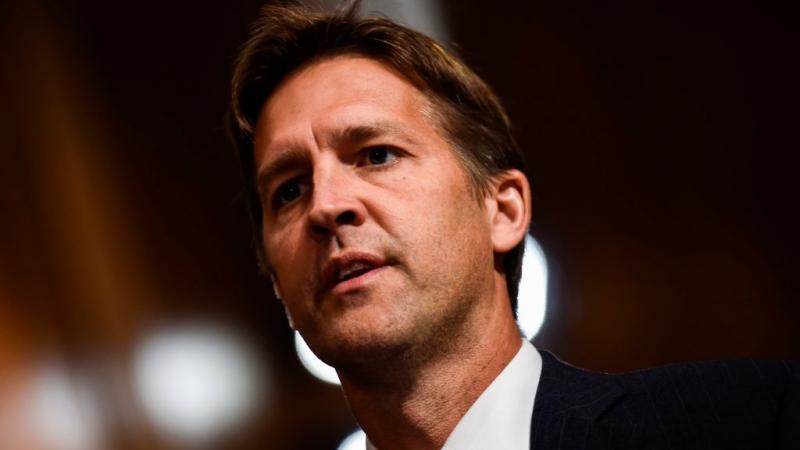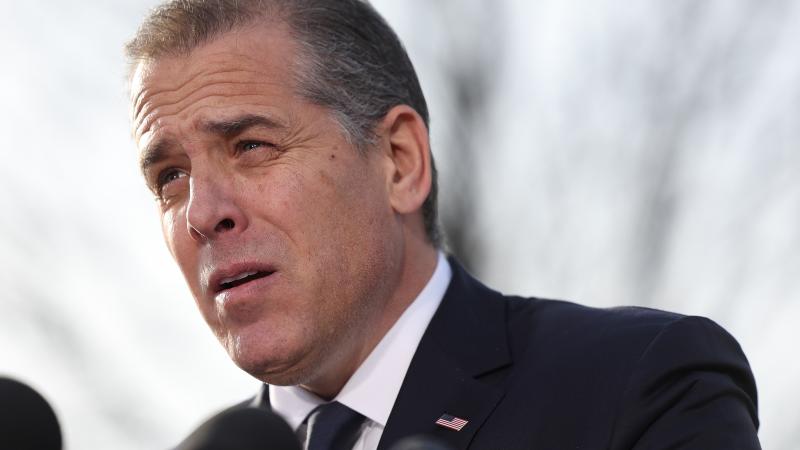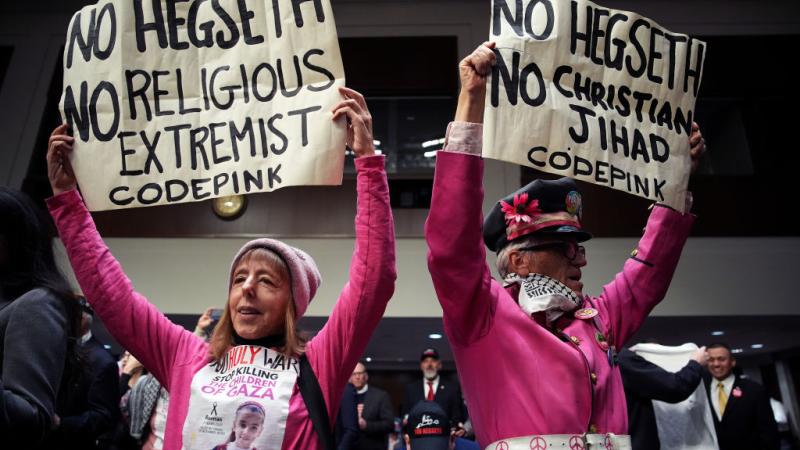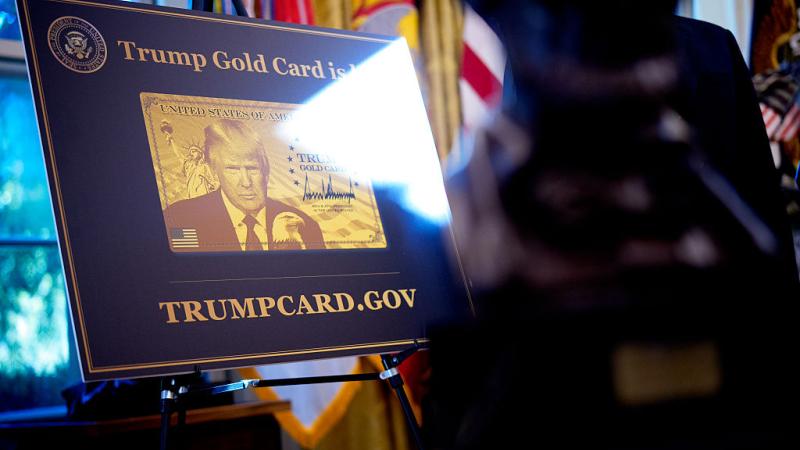Conservatives split on Florida law stripping Disney of special tax, regulatory exemptions
Former Trump 2020 campaign lawyer Jenna Ellis offered her legal services to Disney to defend the company's "right to constitutionally protected speech against Florida's illegal retaliation."
A new Florida law revoking Walt Disney World's special tax and administrative status could prove costly for local taxpayers and has sparked some debate within conservative ranks revolving around political retaliation and First Amendment rights.
Under the bill that Florida Republican Gov. Ron DeSantis signed into law on Friday, Reedy Creek Improvement District — the special administrative unit that has been under Disney's control since 1967 — will be dissolved on June 1, 2023, along with all other independent special districts created before Florida's current constitution was ratified in 1968.
The district explained in a response to the new law that under the original 1967 act establishing Reedy Creek, the state cannot rescind the district's special tax and regulatory exemptions until Reedy Creek's bond liabilities are paid.
According to reports, the district owes about $1 billion in bond debt.
The district said that it will continue operating as usual as it "expects to explore its options" while collecting taxes and "utility revenues, paying debt service on its ad valorem tax bonds and utility revenue bonds, complying with its bond covenants and operating and maintaining its properties."
Orange County Tax Collector Scott Randolph warned that the Disney World host county's taxpayers will be on the hook for the district's debt, meaning county property taxes would have to increase "anywhere from 15 to 20 percent," reported WFLA, a local NBC affiliate.
"I think this is important," Randolph said. "There is some misconception out there that Disney doesn't pay taxes otherwise, that this is some special taxing district and that Disney is getting out of paying taxes and that if we get rid of Reedy Creek then Orange County just gets all of that tax money — and that's just wrong."
Instead, he argued, dissolving the district would mean sharply higher debt and costs without corresponding gains in revenue.
"Orange County gets at least $58 million a year in debt obligations and probably $105 million a year in maintenance and operation," he estimated. "They get all those costs with absolutely zero in revenue coming in from that area, and the only way that Orange County could cover that, quite frankly, is to raise property taxes."
DeSantis' office noted in a press release announcing the signing of the law, "It is not the understanding or expectation for SB 4-C, abolishing independent special districts, to cause any tax increases for the residents of any area of Florida."
On Thursday, DeSantis spokesperson Christina Pushaw tweeted: "About the Reedy Creek special district: Disney will pay its fair share of taxes. Floridians, including residents of Orange and Osceola Counties, will not be on the hook. Do not fall for another partisan political lie being amplified by media. More to come ..."
The law was passed after Disney vowed to oppose Florida's Parental Rights in Education bill, (dubbed the "Don't Say Gay" law by critics), which prevents classroom instruction on sexual orientation or gender identity in grades K-3.
DeSantis addressed the company at the bill signing ceremony to strip Disney of its special status. "You're a corporation based in Burbank, California, and you're gonna marshal your economic might to attack the parents of my state," he said. "We view that as a provocation, and we're going to fight back against that."
Conservatives, meanwhile, are themselves split over the law, with some arguing the measure was an act of political retaliations that infringes on Disney's free speech rights.
National Review senior writer Charles Cooke posted his article on the situation with the caption: "DeSantis and the legislature pushed through a sensible education bill, and then stared down Disney's ridiculous, hysterical criticisms. They fought. They won. There is no need for them to salt the earth, take revenge, or make Florida's policies worse."
Jenna Ellis, former Trump 2020 campaign lawyer, retweeted the Cooke article, commenting: "@charlescwcooke is right. Imagine if Newsom was doing this to Chick-fil-A. Policy and law must be fair and reasonable. Not vengeful."
In a reply tweet, Ellis added: "As much as I disagree with Disney's corporate statement, they have a right to speak and support or not support legislation without government consequences. Their customers have a right to react with their dollars. DeSantis is over the line here."
Townhall columnist and lawyer Kurt Schlichter responded to Ellis, tweeting: "This is a terrible analogy. It's just not right at all. I strongly support destroying our enemies in order to make an example of them so that they don't ever cross us again."
Ellis replied, "I said *IF* CA was doing the same thing to CFA (a conservative company) as FL to Disney (a woke company).
"It's illegal for a government take adverse action against a corporation in retribution for constitutionally protected speech.
"I strongly support free speech for all."
Ellis offered her legal services to Disney on Friday, tweeting, "Hi @Disney. Open offer to help defend your right to constitutionally protected speech against Florida's illegal retaliation."
David French, senior editor at Never Trump opinion site The Dispatch, rebuked the right for criticizing San Antonio for targeting Chick-fil-A while praising DeSantis for targeting Disney.
Responding to French, The Daily Wire cofounder and co-CEO Jeremy Boreing initially supported the legislation. "An illiberal left creates an illiberal right," Boreing tweeted. "Conservatism is definitionally reactionary. This is the reaction. As a value, I dislike it. As a tactic, it is good, moral, and right. Mutually Assured Destruction is a good policy. Allowing your cities to be nuked is a bad policy."
Boreing later retweeted his post, saying: "On reflection, I do not support what Florida did to Disney. I stand by what I said regarding MAD and the illiberal left, but this is not an action the left has actually taken. It's a first strike, and a dangerous one. Freedom of speech without government reprisal is sacrosanct."
Boreing and Manhattan Institute fellow Christopher Rufo then debated appropriate methods of punishing Disney, with the latter suggesting that both public pressure and legislation are acceptable methods.
"Both methods are good," Rufo replied to Boreing. "Public pressure is essential, but legislation removing special exemption —i.e., cronyism—is also a legitimate policy. Disney entered politics and threatened to overturn legislation, so DeSantis renegotiated their sweetheart deal with the State of Florida."
"That last point is where we disagree," Boreing responded. "The right to enter into politics to try to overturn legislation without reprisal is the very essence of the first amendment. Removing Disney's special exemptions may be merited, but not because of their political speech."
He later asked Rufo: "Is the reason for removing Disney's special privileges because the 'company is harming the citizens' of Florida, or because they 'entered politics and threatened to overturn legislation?' The former may be appropriate. The later [sic], not so much."
DeSantis' office told Newsweek in a statement last week: "The governor has consistently supported a more level playing field for all businesses in Florida. It is not 'retaliatory' to pass legislation that allows all corporations to do business in a fairer environment.
"The proclamation from our office at the start of this special session called on the legislature to examine the existence of all special districts. Disney benefits from one of these special districts.
"The special district associated with Disney has existed for decades, since before Governor DeSantis was born. Special districts could in some instances show favoritism. Should a corporation be serving as a regulator and a business at the same time? Should a corporation get to avoid standard environmental permitting processes? Should a corporation engage in eminent domain? Other businesses don't get these privileges.
"Moreover, it was unfortunate that Disney decided to wade into a political debate and attempt to overturn a common-sense law, enacted by a duly elected legislature and signed by a duly elected governor, with the support of the vast majority of Floridians. In fact, it was Disney that 'retaliated' by publicly vowing to 'repeal' or have the law 'struck down.'"


